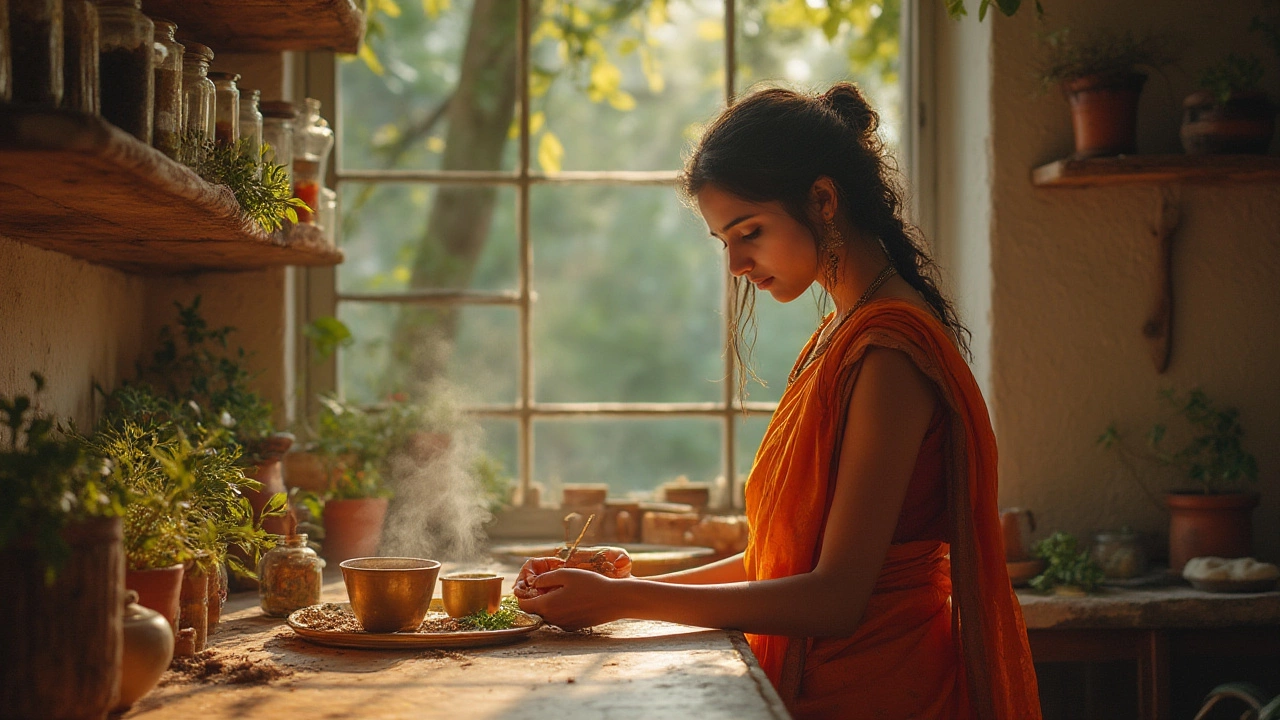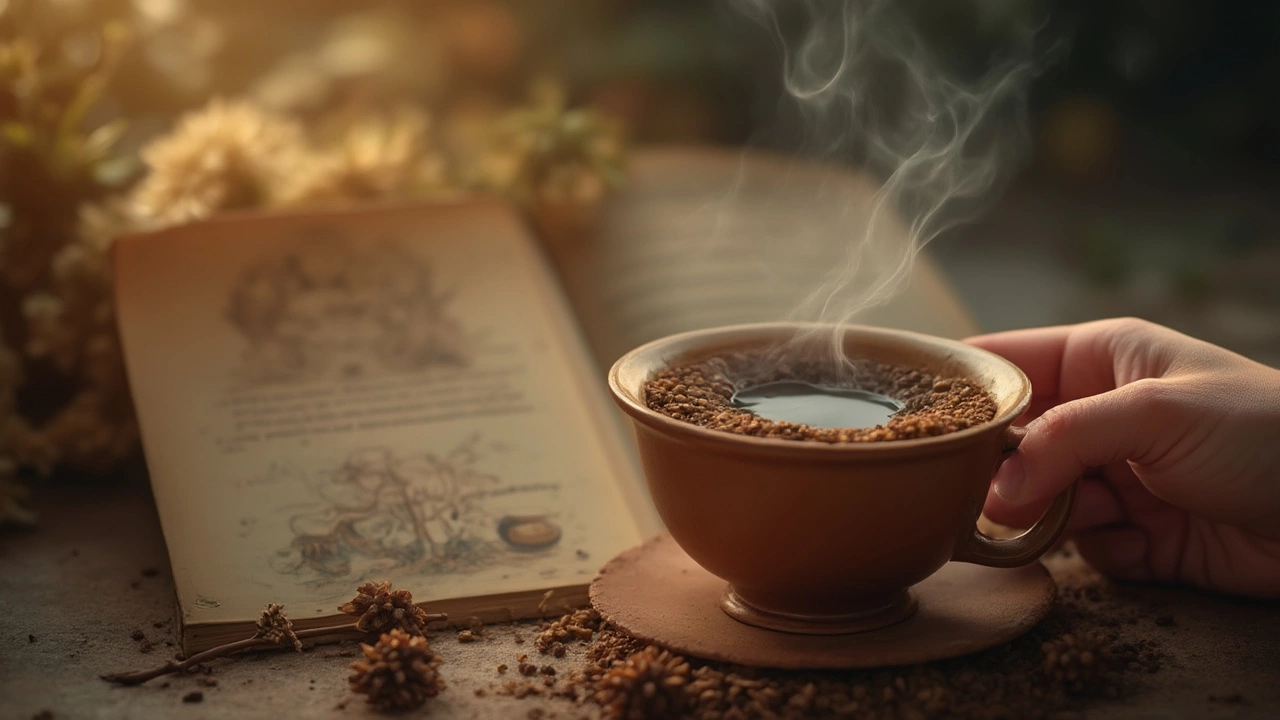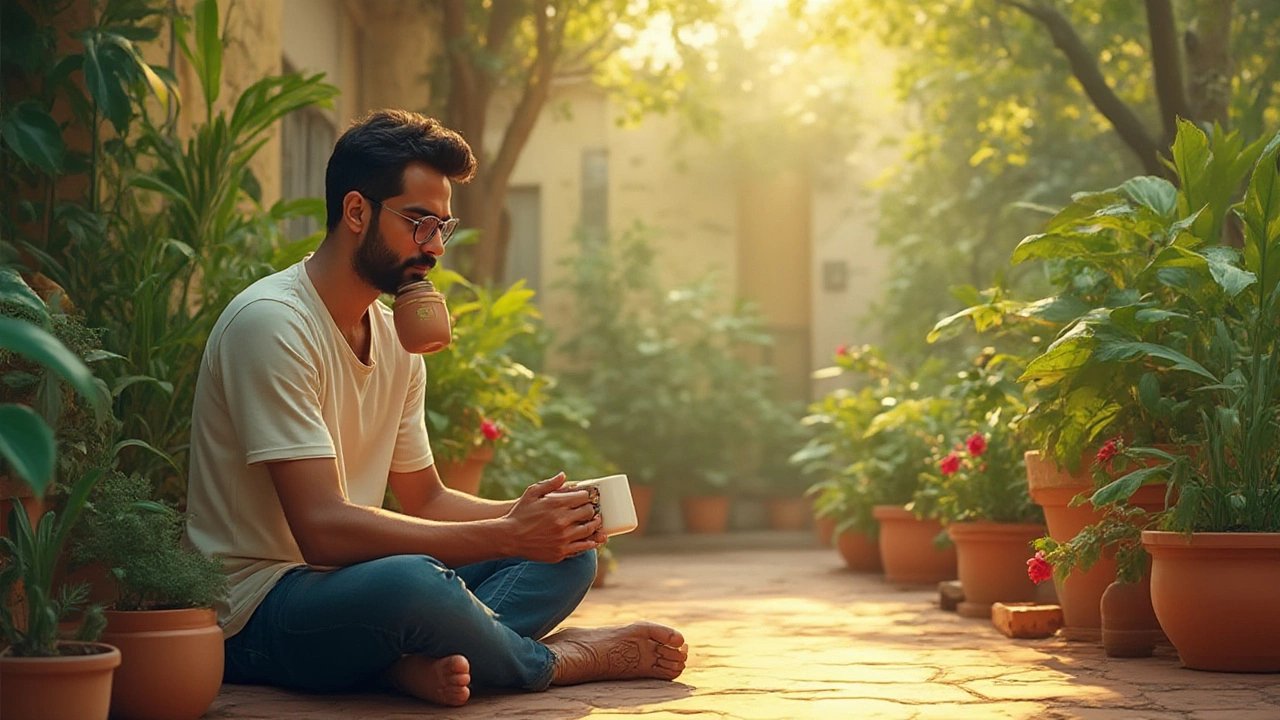-
11

Coffee and Ayurvedic Medicines: Safe Mix or Risky Habit?
Picture this: you wake up, pop your prescribed Ayurvedic tablets, and immediately reach for a steaming flat white. Feels like a typical Sydney morning, right? But here’s the twist. Some Ayurvedic doctors raise eyebrows at this combo and swear that your daily brew could be messing with ancient herbal magic. Turns out, this is not just a quirky opinion. Mixing coffee with Ayurveda is actually a widely debated topic from Kerala to Bondi—and there’s more to it than you’d guess.
Why Coffee and Ayurveda Clash: The Science and Tradition
Coffee, with its unmistakable aroma and caffeine jolt, powers many of our days. But Ayurveda, which has rolled along for over 3,000 years, runs on a different set of rules. Ayurvedic medicine is built around the idea of balancing energies—vata, pitta, and kapha—which connect to everything from our mood to digestion. Coffee, known for its stimulating nature, sits uneasily in this system. According to reputable Ayurvedic texts, caffeine fires up pitta and vata doshas. That might sound harmless, but ramping up these energies without balance could mean more anxiety, disrupted sleep cycles, skin flare-ups, and even stomach acidity. And if your Ayurvedic remedy is already trying to cool you down or soothe your nerves, a hot cup of joe could be undoing the medicine’s effects—sort of like hitting the gas and brake at the same time.
Coffee does more behind the scenes, too. It’s a diuretic, causing you to lose water and, potentially, flushing herbal compounds from your system before they can properly absorb. A 2019 research paper out of the University of Newcastle found that taking diuretics near herbal medicines lowered the absorption of key phytochemicals in herbs like ashwagandha and brahmi—two mainstays in Ayurvedic prescriptions. Though no one is suggesting you need to drop coffee completely, what’s clear is that the overlap isn’t as smooth as a cafe latte.
Herbal Absorption and Caffeine: What Actually Happens?
It’s not just the Ayurvedic doshas you need to worry about—caffeine can genuinely mess with how your body takes in certain herbs. Ayurvedic medicines usually involve a careful mix of roots, leaves, and minerals, all tailored to a person’s body type and problem. Many of these compounds rely on slow, even absorption for full effect. According to a study published in the Indian Journal of Physiology and Pharmacology, caffeine ramps up your metabolism, speeding the transit of materials through your digestive tract. That might sound helpful, but it often means your body doesn’t have long enough to grab all the goodness from the herbs. The result? Weaker effects and a waste of precious herbs (not to mention your money).
Some herbs react even more dramatically. For example, gotu kola and tulsi—known for calming and adaptogenic qualities—are subdued by caffeine’s opposing energy. On the flip side, herbal diuretics like punarnava might double up with coffee, leaving you dehydrated and low on potassium. The technical bit: caffeine interacts with liver enzymes called CYP1A2 (cytochrome P450 family), the exact same pathway that processes dozens of medicinal plant compounds. Take them together, and the liver can get confused about what to clear out or keep, making dosages unpredictable even with the best medical expertise.
| Herb | Main Benefit | Caffeine Interaction |
|---|---|---|
| Ashwagandha | Stress relief | Reduces calming effect |
| Tulsi | Immunity boost | Decreases absorption |
| Brahmi | Mental clarity | Speeds up excretion |
| Punarnava | Reduces water retention | Risk of dehydration |
| Triphala | Digestive health | May cause stomach upset |

Side Effects: When Coffee Becomes a Troublemaker
Here’s where it gets personal. Not everyone who drinks coffee with Ayurvedic medicine will have a disaster, but there’s a pattern of predictable hiccups. Want sharper nerves? Coffee will amplify it, sometimes leading to jitters, palpitations, or headaches, especially if you’re on calming herbs. Sensitive gut? The combination can make you feel bloated or even set off a case of acidity. And yes, there are stories from Mumbai to Melbourne about stomach upsets or even allergic skin reactions when high-caffeine diets clash with herbal therapies meant to detox your body. Your liver, which handles both medicines and your flat white, can get overloaded, meaning neither the caffeine nor the herbal powers work to their best potential.
There’s also a quirky twist: Some Ayurvedic medicines use herbs that can naturally slow heart rate or relax blood vessels, while caffeine pushes the heart to beat faster. It’s like pressing two buttons at the same time on your body’s control panel. In a review from the Australasian Medical Journal, patients reported more irregular heartbeat episodes when mixing Brahmi or Guduchi herbs with their morning espresso. And let’s talk sleep. Many folks turn to Ayurveda to fix insomnia, but regular coffee—especially after midday—undermines those herbal sedatives, leaving you staring at the ceiling all night.
Expert Tips: How to Combine Coffee and Ayurvedic Medicine Safely
No need to panic and swear off coffee completely. Here are some practical tips from actual Ayurveda practitioners in Sydney:
- Wait before you caffeinate. Leave at least 1.5 to 2 hours between your herbal medicine dose and your coffee. This gap helps your body absorb the good stuff without competition.
- Keep it mild. Choose coffee blends with lower caffeine (think decaf or light roasts) if you’re drinking the same day as your Ayurveda dose.
- Drink more water. Coffee’s diuretic effect dehydrates you and speeds up herb elimination. Counteract this by adding a couple more glasses of water to your day.
- Watch your symptoms. If you start feeling jittery, anxious, or get stomach upset after coffee and med pairings, consider swapping to herbal teas like tulsi chai or roasted chicory, which have similar flavors without the caffeine spike.
- Ask your Ayurvedic doctor. Some herbal combinations are riskier than others—the classic herbs like ashwagandha, brahmi, and tulsi are more sensitive to caffeine. A personalized plan beats guesswork every time.
Curious about numbers? About 80% of Ayurvedic practitioners interviewed in a 2023 survey from the Indian Institute of Health Sciences advised patients to cut back on coffee completely while on certain herbal regimens—especially for those treating anxiety, heart problems, migraines, and chronic insomnia. But a smaller group, about 15%, said that if you simply can’t give up coffee, spacing it apart from the herbs often prevents any major trouble.

Alternatives and Lifestyle Tweaks for Coffee Lovers
If you’re thinking, ‘No way am I giving up my morning brew,’ you’re not alone. But maybe you can have it both ways with a little creativity. Try alternating coffee days with caffeine-free ones—your body (and your doshas) will thank you. Herbal coffee substitutes aren’t just for hippies; chicory, roasted barley, and golden milk lattes are picking up steam in Sydney’s cafes, too. And, honestly, after a few weeks of spacing out your coffee and Ayurveda meds, some folks notice a surprisingly positive boost in energy and mood—without the afternoon slump.
The fun part is experimenting to see what works for your body. Journaling how you feel on coffee days versus herbal days can help spot patterns. If you feel more anxious or notice sleep issues, your body’s sending a message to cut back or switch things up. Some people even find the ritual of preparing a warm cup—whether it’s coffee or herbal tea—gives them the comfort and routine they crave, minus the side-effects.
In a city like Sydney, where you can get a world-class espresso on any street, it’s a tough call to restrict coffee. But Ayurveda’s advice isn’t about deprivation. It’s about tuning in to your body, tweaking habits, and making choices that let both your medicine and your daily pleasures work hand-in-hand. If you balance them right, you don’t always have to choose one over the other.